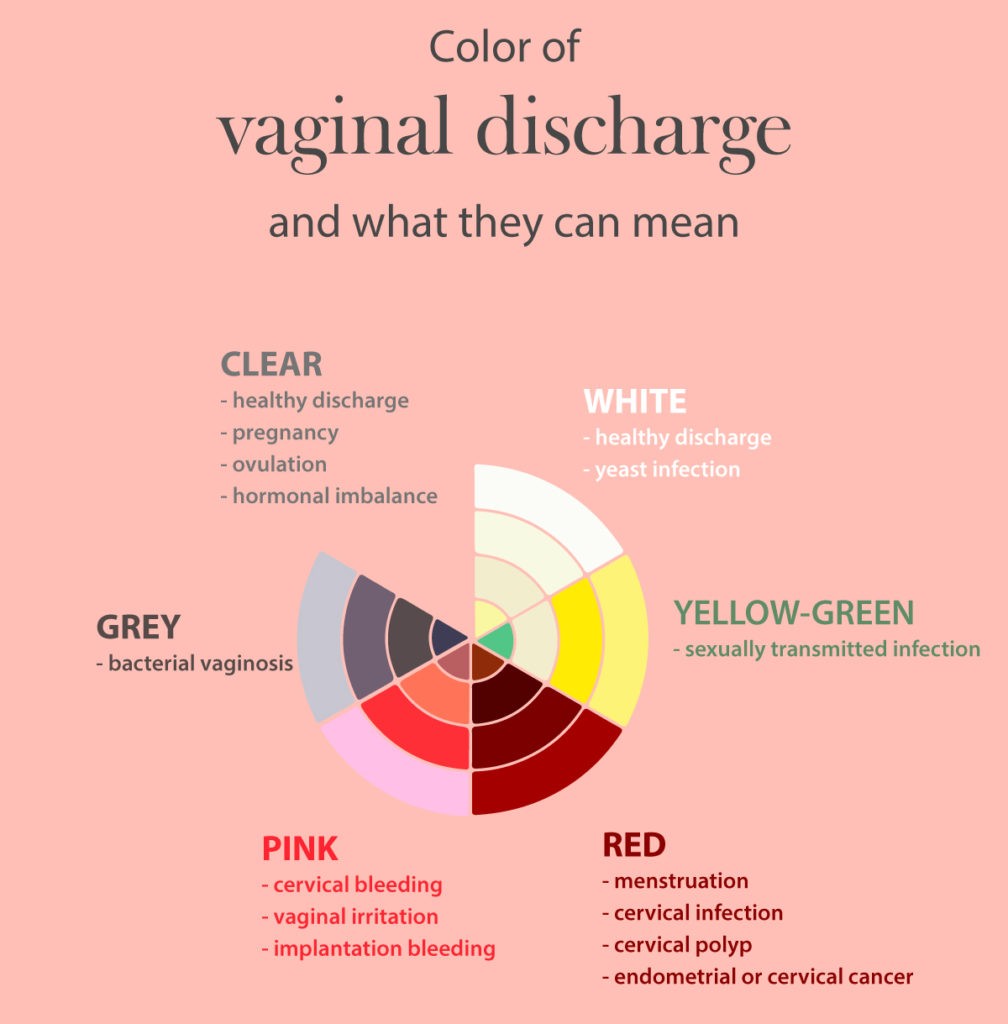
A female’s body undergoes many changes during pregnancy. Vaginal discharge is one of the initial changes during pregnancy in a female’s body. A pregnant female should discuss with her gynecologists all the changes and symptoms in her body.
It is important for the female to realize the difference between normal and abnormal vaginal discharge. A green or yellow-colored vaginal discharge is not normal. It is a sign of a serious vaginal or reproductive infection. It generally has a frothy texture and a foul smell. Such a discharge can also cause serious complications such as miscarriage, premature delivery, etc.
A female may experience normal vaginal discharge during pregnancy. This thin, milky white discharge is called leukorrhea also has a mild smell. This discharge is normal and of no harm to the female and the infant.
The female should strictly avoid douching. Douching can disturb the natural pH balance of the vaginal and can cause infections. There may be mild spotting during pregnancy. Use panty liners or pads instead of tampons.
A female’s body undergoes enormous changes during and after pregnancy. As the estrogen levels fall during pregnancy, many females experience vaginal looseness, discomforting sex, pain while urinating, vaginal itching, dryness during and after pregnancy. Get in touch with our gynecologist and consult about Laser Vaginal Tightening to get rid of post-pregnancy vaginal problems in a safe procedure.
What causes green discharge in pregnancy?
Green discharge during pregnancy can be a symptom of a vaginal infection such as UTI, bacterial vaginosis, yeast infection, chlamydia, etc. A female may also have yellow discharge during pregnancy after sexual intercourse. There is nothing to worry about it unless you observe green discharge very often or if it is accompanied by other symptoms such as high fever, nausea, lightheadedness, dizziness, or a blurred vision. It is completely normal. There may be many reasons for green vaginal discharge.
Trichomoniasis is a type of STD in which the female experiences green vaginal discharge. It is caused by a parasite known as Trichomonas Vaginalis. This condition should be administered by the doctor and not left untreated.
Other causes of greed discharge during pregnancy include-
- Cervical infection
- Pelvic Inflammatory Disease or PID
- Foreign objects or irritants such as vaginal sprays, douches, perfumes or other intimate products.
Other common discharges during pregnancy:

- Milky white discharge- A female may have stretchy, milky white discharge in a condition called leukorrhea. This happens generally during pregnancy. If a female is not pregnant but still experiences white-colored discharge, she should immediately consult a gynecologist.
- Lumpy white discharge- A yeast infection can cause white or off white lumpy vaginal discharge. During pregnancy, a lumpy white discharge may also be accompanied by itching, burning, pain while urinating or during sexual intercourse.
- Gray Vaginal Discharge- Gray vaginal discharge may be a symptom of a vaginal infection called Bacterial Vaginosis. It may also give a fishy smell. The smelly gray discharge gives a stronger odor after sexual intercourse.
- Pink Vaginal discharge- The female is more likely to have a pink colored discharge during the early weeks of pregnancy. Pink discharge is also common around the time of delivery of the child, indicating that the body is preparing for labor. It can also happen in case of miscarriage.
- Red Vaginal Discharge- The red-colored discharge is not common during pregnancy. If accompanied by cramps, pain, heavy bleeding, blood clots, or abdominal pain, consult your gynecologist immediately. This condition indicates a miscarriage. But still, it is essential to consult a gynecologist before rushing to end results.
What to do if having Green, Smelly Discharge during pregnancy?
Also Read: How does Pregnancy change the female?
Also Read: Get Rid of vaginal Looseness and Discomforts after Pregnancy or Childbirth









All women should know about these changes, especially during pregnancy. For better knowledge, seeing a gynecologist is the best option.